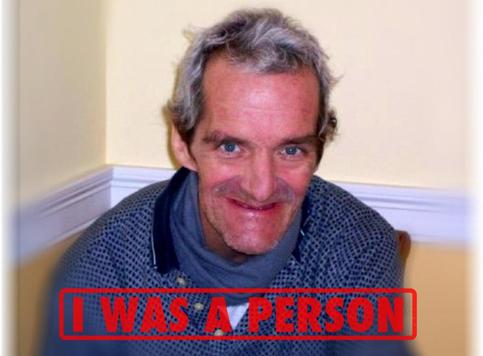If the past is any predictor of the future, the horror of the Parkland school shootings will now slowly recede into the sunset.
How do we get lawmakers to do what needs to be done to make America a country we are proud of and feel safe to live in? Or, will Parkland–like New Town, Connecticut, Aurora, Colorado and all the others–continue to cause a few moments of discomfort when someone mentions it, but nothing changes?
Our United States Congress – people we elected to represent us, do nothing. They blather and bluster and argue, Russian bots put out false narratives, and the NRA lines their supporters’ campaign chests with money. And nothing changes. Well, we voted our Senators and Congressmen and state legislators into office. We can vote them out. Let’s call, write, and demonstrate that to earn our vote, we don’t just want them to “do something,” we want them to do the following:
Improve care for people with a serious mental illness. It’s not clear whether the Parkland shooter suffers from a mental illness like Schizophrenia or Bi-Polar Disorder, but he is certainly a very troubled young man. The Aurora, Colorado shooter definitely suffered from a mental illness. Following my experience of taking care of my mentally ill brother, Paul, who suffered with severe and persistent schizophrenia, I have identified the following ways we can improve care to not only improve their lives, but also save lives:
Reinstate federal and state funding for psychiatric hospitals. Most people with a serious mental illness can’t hold down a job and must be cared for using the Medicaid system. The Medicaid system excludes funding for care in an institution for mental disease (IMD). It will pay for emergency room care if someone is in serious psychosis–raving in the street, but only for a short hold. Congress can change that, eliminating the IMD exclusion and enforcing compliance with the Mental Illness Parity Act, which governs mental health coverage by private insurance companies. My brother cycled through treatment, release, decline, re-admittance, over and over again. Many people who are severely ill end up in jail, through no fault of their own. Wouldn’t it be better if they had #abedinstead in a medical facility or supportive housing?
Review and update the definition of when we may intervene when we see that someone in our community is mentally ill. If a person must have already proven themselves to be a danger to others before they may be committed, then by definition social workers and doctors can’t hold someone like the Parkland shooter until after they have already done something horrible. Both Federal and State lawmakers likely have to address this, and then fund and enforce it.
Revise HIPAA—the patient privacy laws—to allow families to play a greater role in their loved one’s care. Families can support the care process and be the early warning alarms, both to onset of problems and to worsening of them. Congress again.
Fund—and support in other ways—community out-patient mental health care and long term supportive housing. This includes anything from early intervention in schools and having more school counselors, to follow-up support for patients released from hospitals. Dr. Stephen Seager’s second documentary (link below) describes a system in practice in California that seems to be working post release. The main thing to remember is no one single thing will help the mentally ill homeless get off the streets and out of our prisons, except treatment and providing long term housing.
See also Paul’s Legacy Project by my sister, Ilene Flannery Wells.
Secondly, Congress must act to reduce the availability of dangerous guns. There is mental illness all around the globe, but no other first world country suffers from the gun violence we have, with our lax gun laws. Try googling “mass shooting statistics” or “gun violence.” It is intuitively obvious that we don’t need to have so many guns floating around, so easy to buy, especially not semi-automatic assault rifles. Remember, President Reagan was shot, and he was surrounded by trained Secret Service men. Giving a gun to the good guys is not necessarily a recipe for safety.
Anyway, is owning so many guns really bringing people life satisfaction? When they have to worry if they will be shot while at church, or their children shot while in school? Or be shot while innocently sitting in a car at a stoplight, caught in the crossfire of a gang gun battle? (which happened in NYC a couple of days ago)
Call, write, demonstrate. Let them know that we want better background checks, enforcement of laws already on the books, and sensible new gun laws, including restrictions on where guns may be sold, restrictions on who can buy, licensing, etc.
And let our elected officials know that accepting contributions from the NRA = our vote for their opponent.
Another way to reduce gun violence is by educating and supporting the people our economy is leaving behind. Automation is taking many of the jobs people without much education have performed over the years, leaving them feeling hopeless and angry.
We must fund our community colleges and trade schools to prepare people for real jobs of the future.
We must also develop and implement curricula to teach young men how to deal with setbacks in life and that their masculinity is not defined by shooting powerful guns. (See a recent article on toxic masculinity)
Our federal and our state legislators can be working on this. (Call, write, demonstrate.)
If you go through a list of the mass shootings, you can see that no one thing would have stopped every shooting. And no one thing will stop the shootings that take place in our streets on a daily basis. Focusing only on mental illness is not the answer. It will take a multi-pronged attack to slowly turn this around.
Wishful Thinking
In my essay “Wishful Thinking about Mental Illness” I discuss how our tendency to hope for the best has contributed to the perfect storm of gun availability as well as untreated mentally ill people going without care and getting access to those guns. I have also read some insightful opinion pieces by others—about male feelings of entitlement and how many men may be feeling left behind by our economy—that are a disturbing read. That trend, also, will not just right itself on its own. It will need attention.
We don’t like it when reality does not comply with our dreams; we tend to hold onto them, believing instances that don’t match our dreams were anomalies. But facts are facts. We need to face them and develop realistic strategies to fix things.
Over the years after my book about my brother was published in 2014, I participated with many family activists in many group efforts to support legislation to change the Federal approach to the care for Mental Illness and Substance Abuse. The 20th Century Cures Act was passed about a year ago, and some of the improvements are just starting to be felt. It was a start, and it took several years and the efforts of many, many people. And much more needs to be done.
My Family’s Story
When my brother was released from the New York State Psychiatric Hospital in Wingdale, New York, back in the early 1990’s, I thought the hospital administration had simply made a mistake. I thought that, unlike everyone else the hospital was releasing in the deinstitutionalization effort, my brother was still profoundly ill, too troubled for me to care for him in my home yet unable to take care of himself. I thought the authorities would see their error and move him to a facility where he could be cared for humanely. It didn’t need to be an enormous brick Dickensian hospital with bars on the windows—this was the 21st century, not the 19th—but he should not be on his own.
Over the next 20 years, I learned otherwise. Many of the mentally ill people released from hospitals—or, as the years passed, who were never admitted to hospitals—were just as confused and delusional as my brother. Our country had crossed through the looking glass; anyone who should have been helping to reopen appropriate facilities was, instead, reciting platitudes about self-directed care and consumers adhering to medication schedules, as if schizophrenia was like having high blood pressure. Take this little pill every day and you will be fine.
Many people do respond to treatment. But not the rest. And without adequate psychiatric care, hundreds of thousands of Americans are sentenced to a cruel cycle of crashing, ER visits, release, and decline, till returned to the ER – or to jail.
Finding Solutions That Fit
The first step in finding solutions is to face the truth about the problem. What possible solutions have we not yet tried? Sometimes the solutions are not perfect, but they’re the best we can do. The Iraqi Vet who can walk with her prosthetic leg is happy to have the prosthesis. She knows it is not the same as a real leg, but she is thankful for it. She doesn’t pretend she doesn’t need it. (And no one tells her to just hop.)
Care for people with mental illness is like that. Taking action on gun regulation is like that. Helping our fellow citizens who need job skills for the post robotics world is like that. We need to keep trying solutions. The problems will not just go away if we don’t think about them.
Follow up
For a personal account of my family experience, read my book, Shot in the Head, a Sister’s Memoir, a Brother’s Struggle.
D. J. Jaffe, in his book Insane Consequences: How the Mental Health Industry Fails the Mentally Ill, goes through the cold hard facts of America’s mental health disaster in a way everyone interested in public health policy should read. It also proposes some of the possible avenues of recourse that can be followed to take better care of the approximately 10 million people in the USA unfortunate enough to be afflicted with serious mental illnesses like schizophrenia or serious bi-polar disorder. So if you want to understand what happened to our mental health system, and what can be done about it, read Jaffe’s Insane Consequences.
Also consider reading Surviving Schizophrenia, by Dr. Fuller Torre, which is out in a new, up to date edition. It is the bible of knowledge about the American mental health care system.
And/or watch Dr. Stephen B. Seager’s two documentaries:
Shattered Families, the Collapse of the American Mental Health System, and
Roadmap, Making a Mental Health System That Actually Works
Our societal problems will not just go away on their own. Wishing won’t change anything.


Another big problem is the cost of higher education. There are many causes. One is that too many colleges have lost focus on their primary function of educating people and preparing them to succeed. Instead they invest heavily in sports driving up expenses. In virtually every state in this nation the highest paid public employee is a college football or basketball coach.
LikeLiked by 1 person
I agree. It is one of my pet peeves!
LikeLike